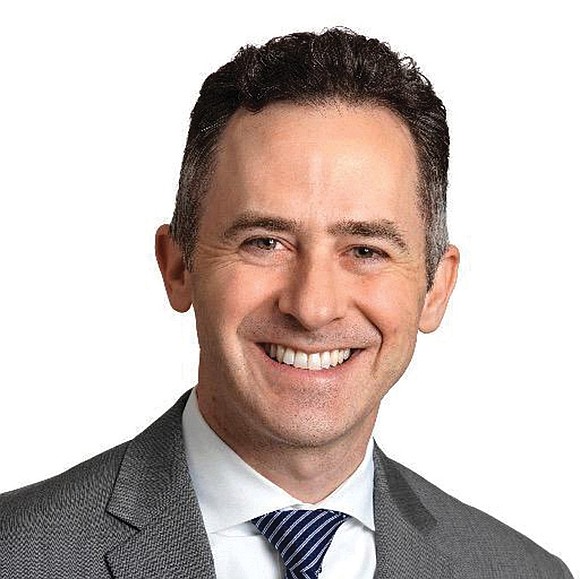RPS School Board appoints Shavonda Dixon for 9th District; budget changes, safety also discussed
Darlene M. Johnson | 2/8/2024, 6 p.m.
The Richmond School Board has unanimously voted to appoint Shavonda Dixon to represent the 9th District.
The spot was formerly held by Nicole Jones, who had served on the board since 2021. Ms. Jones left the board to serve on City Council. She is filling the seat vacated by Michael Jones, who was elected to the House of Delegates in November.
During the Feb. 5 meeting, the board convened in a 30-minute closed session to discuss Ms. Dixon’s appointment after a motion by Dr. Shonda Harris-Muhammed, 6th District. Ms. Dixon was not present at the meeting.
Ms. Dixon, a graduate of Thomas Jefferson High School and a mother of two, will be sworn in next week and she will attend her first board meeting on Thursday, Feb. 20, according to a press release from RPS.
Following the announcement, the board held a public hearing about the 2024-2025 school year budget. Public comments included advocating for better pay for RPS employees, allocating more money to help teachers with classroom supplies and investing more into improving academics and not just behavior in RPS alternative schools — including Amelia Street, Richmond Alternative School and Thrive.
During the Jan. 22 School Board meeting, Superintendent Jason Kamras presented his initial budget proposal for the 2024-2025 school year. The proposal includes an expenditure increase of $36.2 million and almost $1.75 million in non-personnel reductions.
The operating budget covers day-to-day costs of running the school division, such as books, transportation and teacher salaries.
The budget proposal includes five priority areas: talent, academics, wellness, engagement and operations.
Talent ($18.9 million) covers teacher and staff compensation, which includes a proposed 3% raise with a 1.17% step increase for almost all employees, honoring collective bargaining agreements between teachers and administration and salary decompression for staff who still have a compressed salary schedule from the 2008 recession. If approved, the proposed raise will result in a 35.3% compounded increase in teacher pay since the 2017-2018 school year.
During this week’s meeting, Matthew Stanley, director of advocacy and outreach for RPS, discussed budget requests and amendments that include teacher compensation, significant raises and cost-of-living adjustments.
Mr. Stanley also responded to 8th District representative Dawn Page’s questions surrounding lottery funding for RPS. For the 2023-2024 school year, $855 million came from lottery funding to support public education. Of all public education funding, slightly more than 9% comes from lottery proceeds. Traditionally, lottery funds are expected to go directly toward public education costs.
This year, Gov. Glenn Youngkin proposed to take some lottery fund revenue to pay for teacher retirement and unfunded liabilities for teacher retirement, totaling $385 million for the 2024-2025 school year and $150 million in the 2025-2026 school year. The lottery fund historically has been used to provide loans to school divisions for school construction.
Although significant lottery funding goes toward public education, Ms. Page said the lottery funding is misleading to the public. She urged a deeper look into how much public education money comes from lottery funds and where this funding goes.
Cheryl Burke, 7th District, also pushed for more insight into lottery funding for public education. Ms. Burke raised concerns about all proposals not being passed and suggested a further breakdown of proposals such as RPS 200 for Fairfield Court Elementary.
Mr. Stanley provided recommendations for adding $250 million into reforming the At-Risk Add-On funding, which provides more aid to economically disadvantaged students to help them succeed. Research shows that such students need 40% to 60% more funding than their peers in suburban localities, Mr. Stanley said.
Mr. Stanley also recommended the Prevention, Intervention and Remediation Program, an incentive program where money is distributed based on test scores, and also suggested that the program’s funding be combined under the At-Risk Add-On funding.
Another meeting will take place Feb. 14 before the board adopts the official budget for the 2024-2025 school year.
In other business, John Beazley, director of Care and Safety, provided updates on two areas of the care and safety plan, including the cell-phone pilot program that was tested in five schools across the division. The pilot received positive feedback from students and staff, he said.
Mr. Beazley also provided an update on safety survey information that covers facilities, risk management and safety and security. According to his presentation, nine schools need little to no safety updates; while 26 schools need moderate safety updates; and six schools, including Richmond High School for the Arts, need major safety updates.
The major safety updates can include additional structural work such as fixing malfunctioning doors. RPS requested that the company completing the audit return to do a complete audit to cover items such as malfunctioning speakers that have not yet been addressed.







